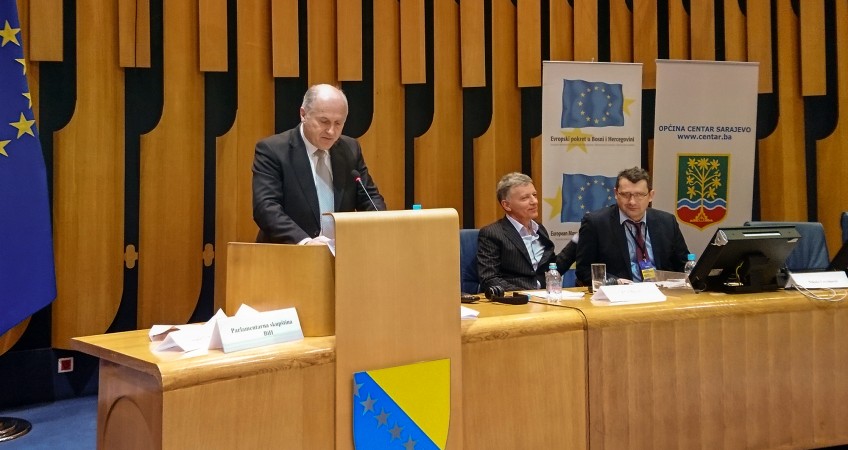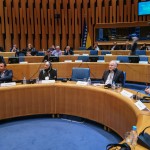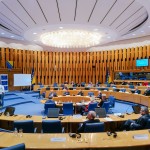Parliamentary Assembly of BiH, Sarajevo, 18 December 2017
Check against delivery.
Ladies and Gentlemen,
Let me begin by thanking the conference organizers. I believe that the theme of today’s discussion is one that can benefit not only those of us here – but also the people of Bosnia and Herzegovina as a whole.
The line between Bosnia and Herzegovina’s European perspective, on the one hand, and the chains of nationalism and history, on the other, may be thin – but unfortunately, it has shown itself to be a major obstacle to sustained progress.
I won’t review the ins and outs of current politics or go into the detailed legacy of conflict that has cast such a long shadow over the country. But I’d like to highlight two points.
The first is that other countries have had to make the momentous transition from the aftermath of disaster to a new and better future – a European future.
I can testify to this because it is the trajectory my own country followed after the Second World War. It isn’t easy. It takes time. It takes patience. But it can be done.
The second point I would highlight is that this transition involves a choice. Societies have to make up their mind. What is it that we want? Do we want to leave the past behind? Are we prepared to follow a new path?
I believe a majority of this country’s citizens made this choice long ago. They crossed over the thin line that separates a failed past from a promising future.
However, some of their leaders are still stuck on the wrong side of the line.
In some ways, this should not surprise us. The political philosophy of the main parties emerged in the late twentieth century, and it had been brewing or a long time before that.
Over the last two decades, it has evolved very slowly. It isn’t ideally suited to the demands of the 21st century.
So, there is a disconnect between the people and many of their leaders.
But not all of their leaders.
This is important.
I have been High Representative for long enough to recognise that profound changes are taking place – inside the political parties and in many of the institutions. This, too, is something that has happened in other transition countries.
I have encountered many individuals and groups at the state level, the entity level and the municipal level who have grasped the essence of a different and a better future for Bosnia and Herzegovina. Among the mayors of this country there are tough and competent political operators who are committed to building bridges not walls; who are prepared to confront past divisions and overcome them; who understand that inclusiveness is a sign of strength, not weakness.
All of us are familiar with the events at the Hague Tribunal in recent weeks. Of course, the cases that were brought to a conclusion are complex, and the reactions of citizens have been complex too – but one of the key achievements of the ICTY has been to sift the facts and get to the incontrovertible truth. This has made at least two things possible. It has made it clear that entire peoples are not guilty of war crimes – individuals are guilty, and when they are convicted they are punished. And it has demonstrated that the politics of the war criminals is the politics of the past. Their day is done.
As we approach the EU Presidency of Bulgaria in the first half of 2018 and Romania in the first half of 2019, we have two very powerful examples of countries that have executed a remarkable transition in the space of just two decades. They have done that because their political leaders by and large heeded the will of a majority of their citizens to choose a future that was very different from – and considerably better than – the past.
The EU integration agenda is a blueprint for delivering benefits to citizens, and the International Community in Bosnia and Herzegovina is providing continuous financial and political assistance to implement this blueprint – but there has to be a corresponding commitment on the part of party leaders – and till now that commitment has been partial and uncertain.
This is not simply unfortunate. It is not simply a cause of slower than satisfactory progress. As the politicians dither, the people suffer. We are now entering the holiday season – but you can’t take a holiday from unemployment. There is a desperately urgent need to implement reforms in order to turn modest economic recovery into a strong and sustained transformation that will create jobs and raise living standards.
As long as many of the country’s leaders remain on the wrong side of the line, that won’t happen. However, I believe that if business people make it clear – with their arguments and also with their investment choices – that faster change is not just an option but a necessity, we will begin to see the coordinated political engagement that can turn the economy around.
Thank you.
Picture gallery:















